With only one Coronavirus positive reported in the state so far, alarm bells in Chennai have predictably been less shrill than in other cities of the country. However, there is no scope for complacence. Government departments have been issuing circulars and releases to the media, detailing the various precautionary measures taken by them to prevent the spread of the disease. In the most recent development, the Tamil Nadu government has announced closure of kindergarten classes in all districts till the end of March.
India is reportedly in Stage II of the disease outbreak, where transmission is said to be contained within people having a history of travel to affected areas and those in direct contact with them. According to the Indian Council of Medical Research, there is a 30-day window for the nation to stop, or at least slow down, the progression to the next stage, when community transmission may begin to happen. Towards that end, governments, organisations and citizens must all take responsible steps.
Chennai Corporation has held talks with owners of theatres, malls, restaurants, ATM kiosks and banks to mandatorily disinfect all high contact surfaces. However, in a reality check by Citizen Matters Chennai, it was observed that while the government departments had initiated measures to halt spread, the efforts of private entities such as restaurants and banks leave much to be desired.
A few snapshots from the city:
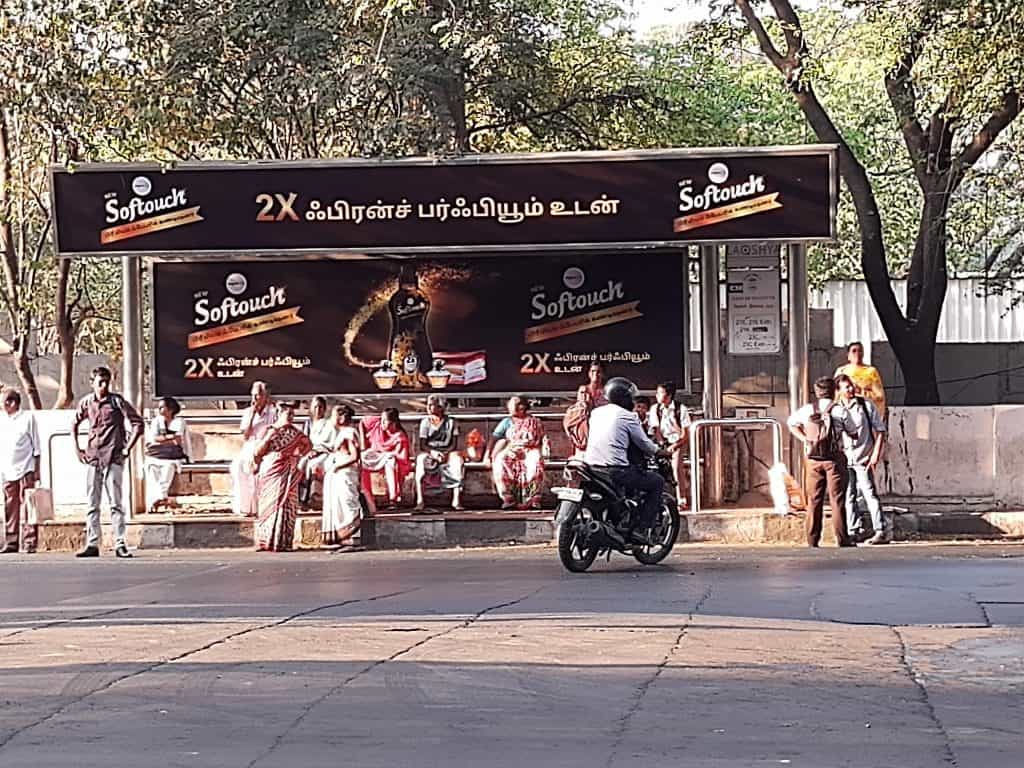
Life goes on: There is no disturbance to normal routine in Chennai as public places continue to be thronged by people. A bus stop on Sardar Patel Road. According to the public health experts, it is necessary for citizens to maintain a safe distance of six to 10 feet away in public places and avoid touch.
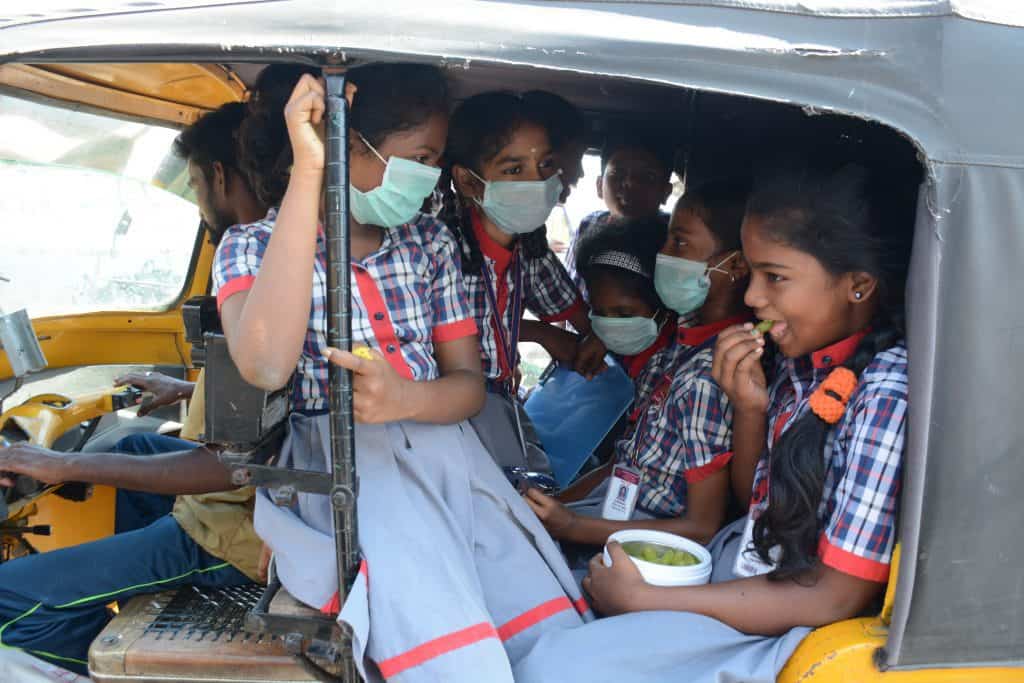
Wearing masks, students go on with the routine of attending schools. The disease can be kept at check by wearing masks and repeatedly washing hands with alcohol based hand-rub.
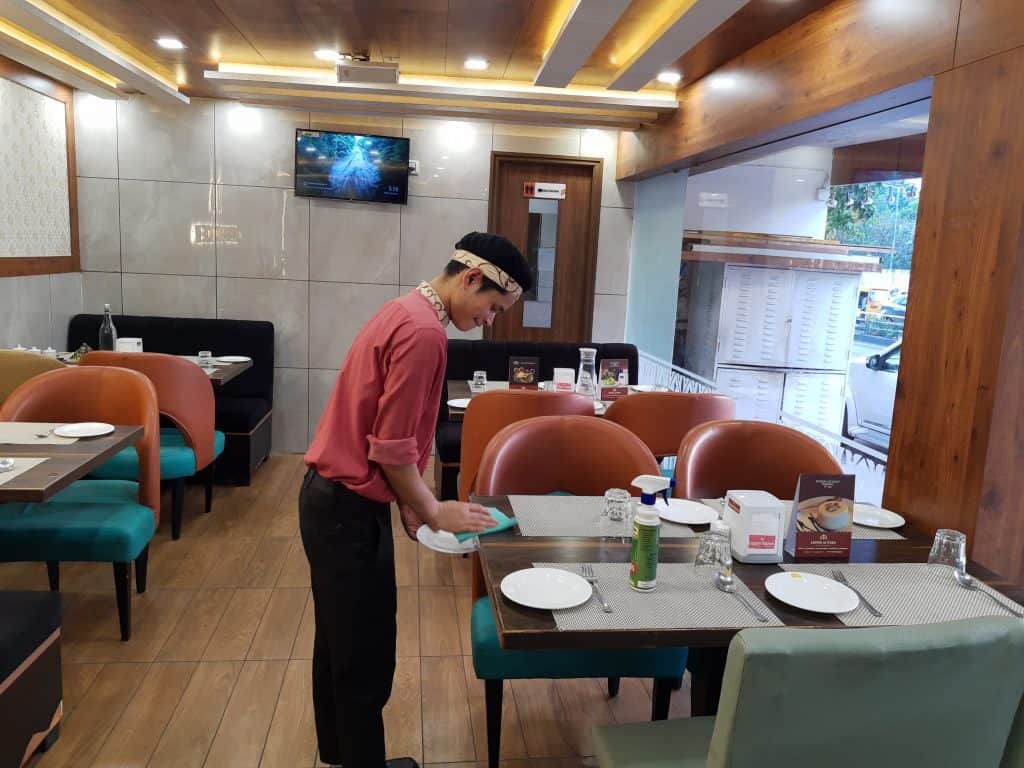
A popular restaurant in Kotturpuram is not aware of the precautionary mechanism. “We clean the tables thoroughly every evening as part of daily hygiene. We have not received any advisory from the government,” said the manager. Customer touch points such as sofas and chairs are not cleaned regularly, admits the manager.

Passenger touch points including check in counters, customs area, chairs, trolleys are being disinfected regularly at Chennai Airport. Pic: Twitter/Chennai airport
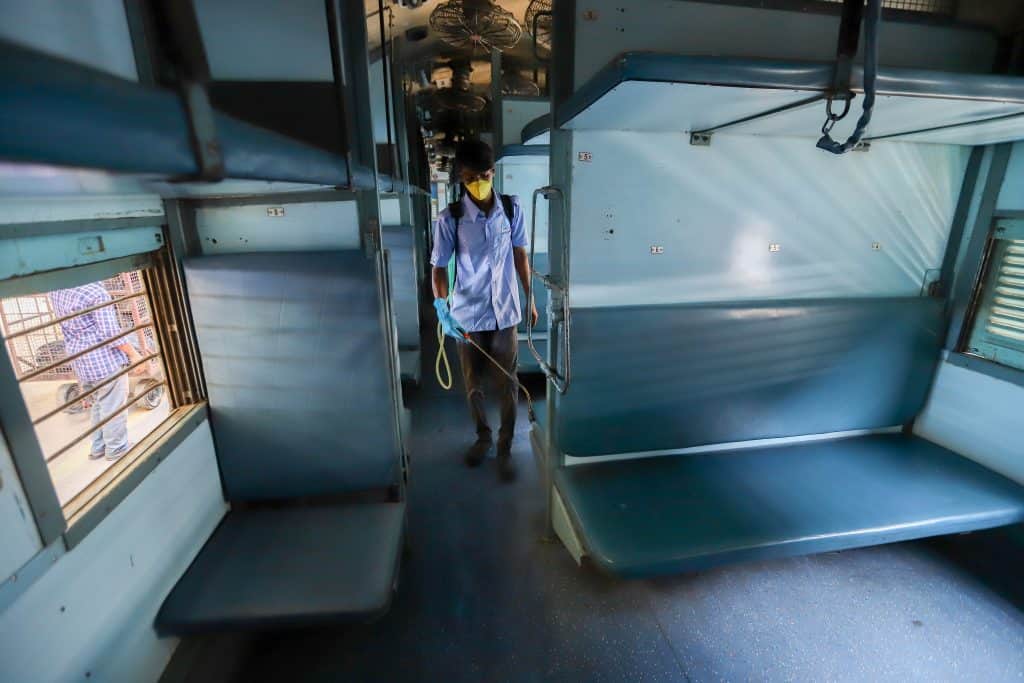
A worker for Southern Railways sprays disinfectant on a suburban train However, the disinfecting procedure was not observed during the two trips taken by this reporter on an MRTS section from Kotturpuram to Chennai Beach.
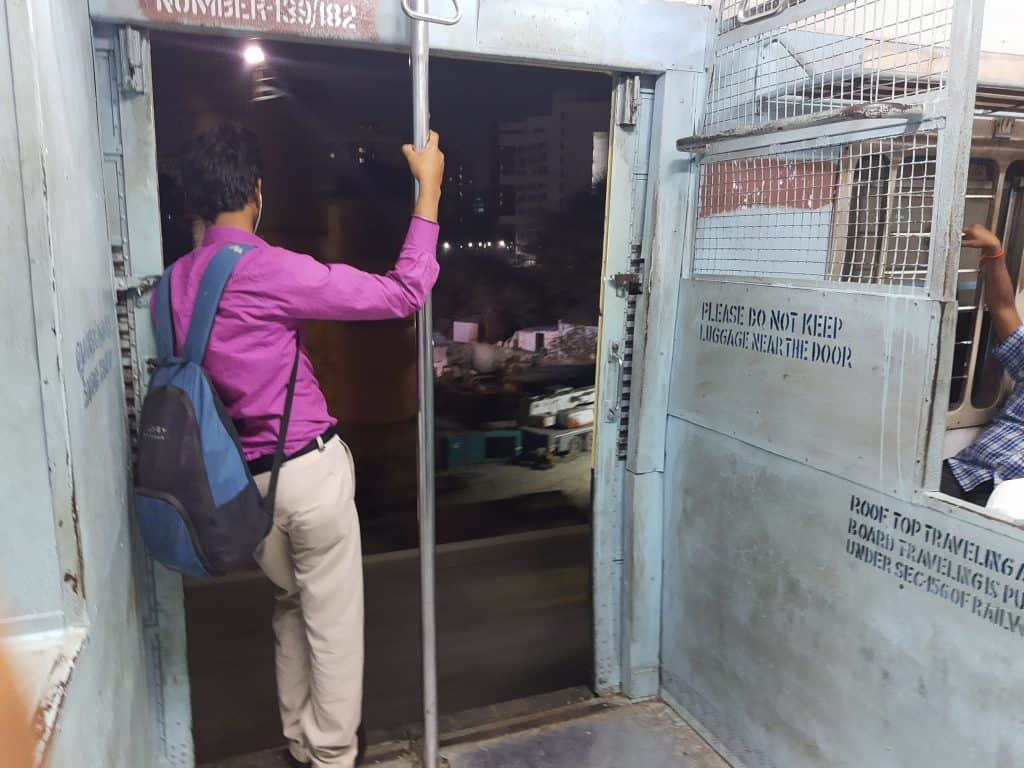
A ticket collector at Park Town Railway station said that the trains are disinfected in the sheds once everyday. But is that enough to restrict the community spread of Caronavirus?
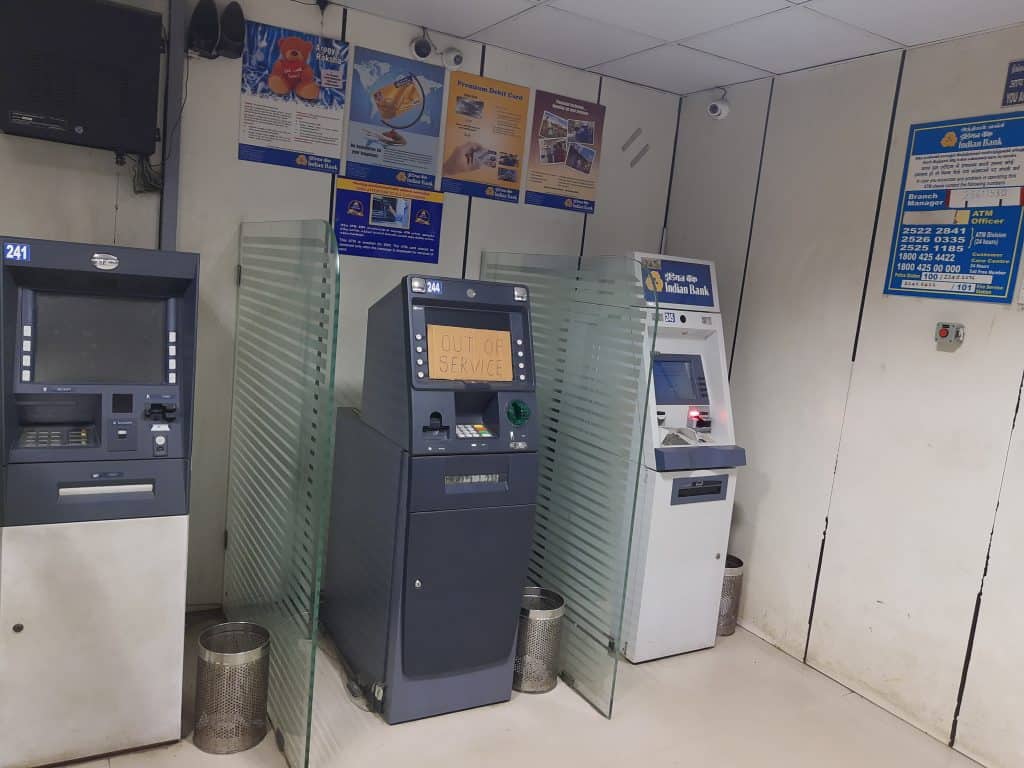
The absence of hand wash/sanitisers at this ATM kiosk in Chennai Central increases the vulnerability of users . As personal hygiene is the need of the hour, citizens should clean their hands with sanitisers before and immediately after using such facilities. Do not touch your face, nose and eyes before washing/cleaning your hands.
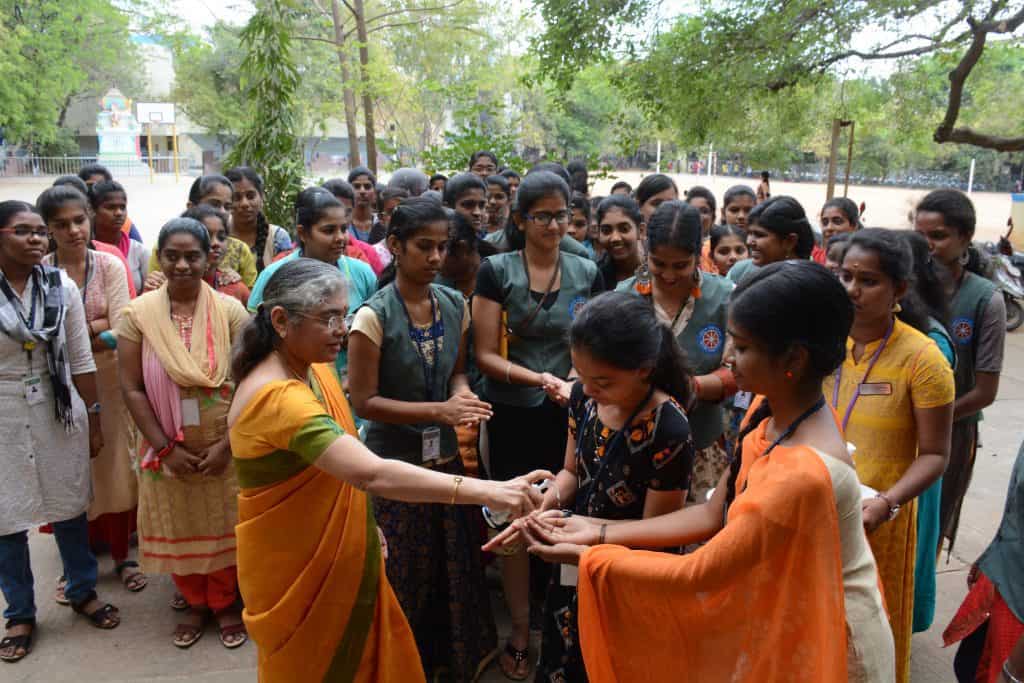
Preventing the virus transmission: Students of Anna Adarsh college of Anna Nagar hand wash their hands with soap and water to convey an important message.
(Pics by the author, unless otherwise specified) —
“Based on instructions from the health and transport departments, all the 3400 buses belonging to the MTC are disinfected every morning. It is a practice that we followed even before the spread of Caronavirus,” said the spokesperson of MTC. When asked if the drivers were wearing masks, the spokesperson said, “It is not necessary.”
Following complaints from passengers, the Chennai Metro Rail Limited (CMRL) has been making announcements at the stations requesting the passengers to cover their mouths with tissues or handkerchiefs while coughing. “We have instructed the staff sitting at the counters to use masks and hand sanitisers. Rest rooms are cleaned frequently,” said Pandiyan Shanmugam, spokesperson of CMRL.
For Tamil version, click here
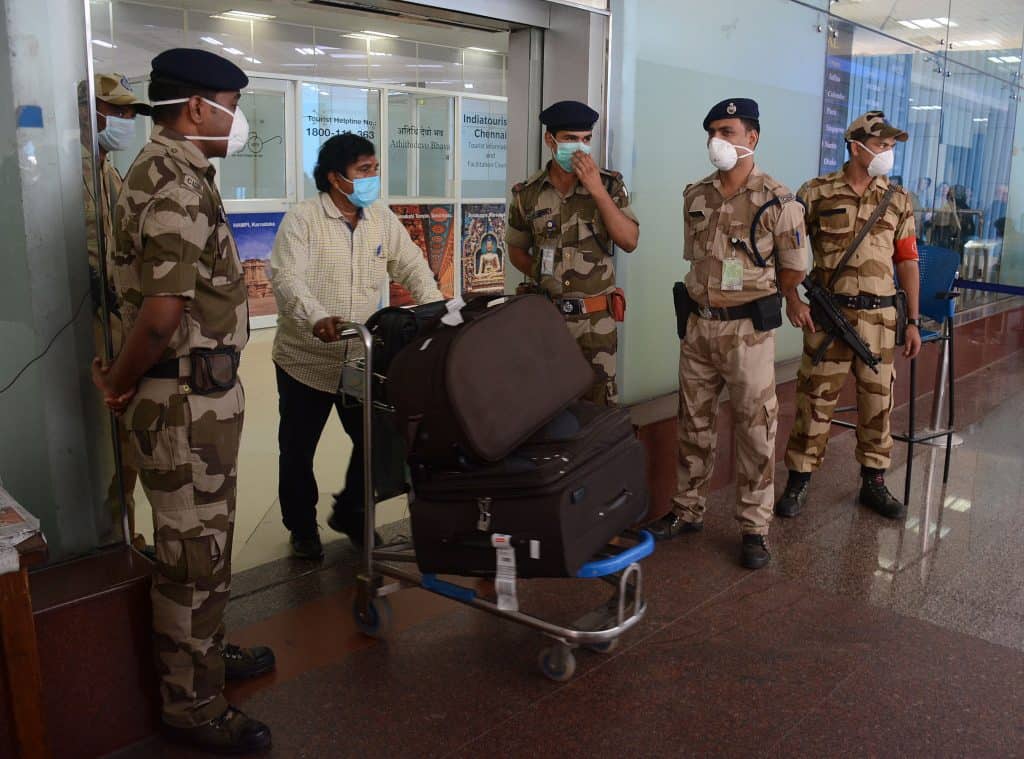
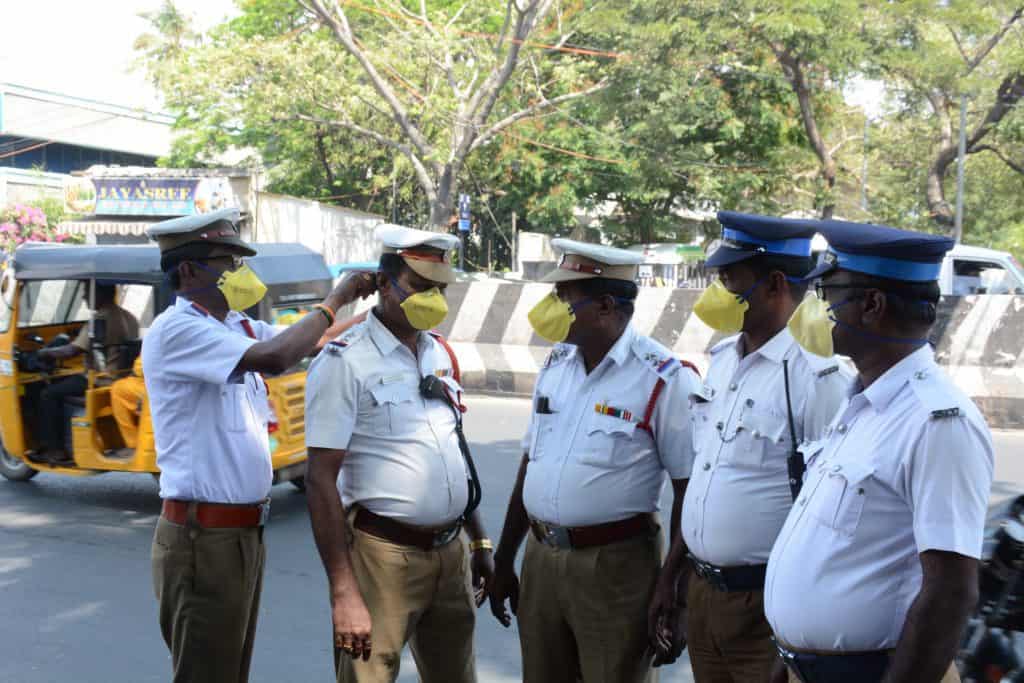
Still metropolitan transport corporation buses are not properly cleaned of debris and waste even at the starting point. Lack of proper cleaning of the bus is very high.
Prevention is better than cure. As we see the fatalities in the wide hit countries like China, Italy, we in Chennai has to be more alert and take measures on emergency basis. Government should declare holidays for the next 2 weeks. Once emergency services should be allowed to work. Stage 2 is not showing that much of effect but when it progress to further stages certainly the thickly populated city like Chennai has a very high risk.
Frequent cleaning with disinfectant is to be increased especially handrails,door knobs,elevators,chairs,counters where passengers touch,straps of buses and metro trains where constant human contacts happen etc., Banks shall install hand sanitisers at tecah ATM point.Stop all Govt.events and other functions to prevent public gatherings and arrange to provide soap dispensers wherever running water is available.
Madras buses are really really dirty. Everyone is to blame for this.
Renowned schools need to be pulled up and cautioned for cleanliness and to provide soap and water in all the rest rooms and not to wait for government notification . government run corporation schools have better awareness.
All the ATMs and buses should provide sanitizers as preventive measure for a while to restrict the virus spread. If required they can charge extra for the same since health is the most important one.
Public transport needs to be cleaned / pressure washed daily and the window bars and seats needs to be sanitized after every trip.
still higly populated It companies are taking action in preventing people from virus infection in chennai most of the companiea are working with full strenght that should be avoid goverment should necessary action
Practise personal hygiene. Common sight of men urinating by roadside pavements, or spitting onto the roads, all these inconsiderate acts will contribute to spread of the coronavirus.
Please have some consideration for others.
In Chennai I see people including the bus crew n staff openly urinating at the corner of the bus stand itself, right opposite the Mambalam Police Station.The place stinks and the commuters n passersby r at high risk of infection. This needs to be stopped. The sense of hygiene amongst Chennaites is non existent.